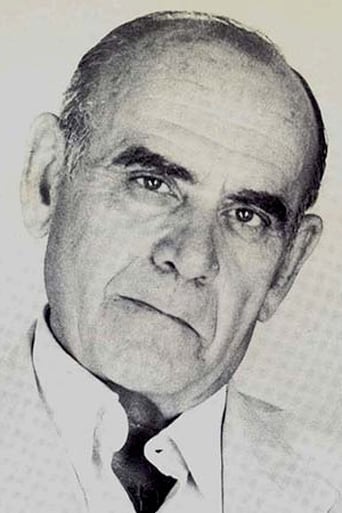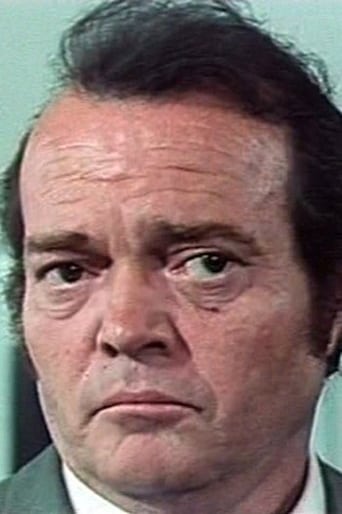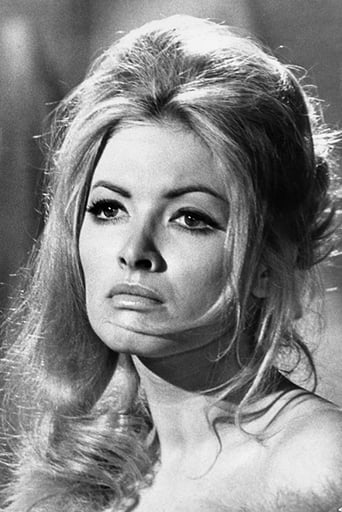Lovesusti
The Worst Film Ever
AutCuddly
Great movie! If you want to be entertained and have a few good laughs, see this movie. The music is also very good,
Hadrina
The movie's neither hopeful in contrived ways, nor hopeless in different contrived ways. Somehow it manages to be wonderful
Jakoba
True to its essence, the characters remain on the same line and manage to entertain the viewer, each highlighting their own distinctive qualities or touches.
oOgiandujaOo_and_Eddy_Merckx
The story of the film concerns "Colonelo" Bertone a self-appointed community intercessor and thief in World War II Italy, passing on bribes from families to the Germans in order to help their sons (or gambling away the bribes and eating their food parcels). It's definitely a film of two halves, the first half of the movie to me feeling decidedly Pasolinian. Bertone, though undoubtedly a scoundrel does his best to keep people happy, is a character that spreads a certain amount of charm in the world. For some people who have never known love or had anyone to look up to, he provides a show, his charisma is like ambrosia. Having been brought up with Protestant vales it has been a revelation to me in life how people value charm as most precious, a Veblen good, more prized when it is most demanding, how a charming person is valued above all others even when they live in a moral vacuum.The second half of the movie is, in structure, a more conventional prison movie where Bertone, working for the Germans in order to save his skin, becomes an impostor pretending to be Generale della Rovere. Whilst pretending to be the general he begins to assume many of the general's characteristics. This part of the film is very patriotic, and contains a beautiful fresco of Italian cities on the prison wall. The ideology of this part of the movie is all about recognising the efforts of the largely Communist, Partito d'Azione and Socialist partisan resistance, bodies who were largely excluded from the post-fascist Italian government, which was dominated by the Christian Democrats, who many felt to have been tainted by association with fascism.Pontecorvo's movie Kapò was released contemporaneously, and features a similarly caricatured version of the Teutonic gaoler and slightly ebullient view of World War II, that would become refined in future decades. That said, Il Generale della Rovere, is undoubtedly a masterpiece.
michaelj108
An understated masterpiece, this film charts the moral growth in nearly the worst of times of Victorio Grimaldi played by Vittorio De Sica. Other comments set out the main lines of the plot and note the excellence of de Sica as the not-good, but not all-bad, Grimaldi who is just trying to survive, like everyone else. But it evolves in a story of one man trying to live up to the expectations of others, who have had it even harder than he has. Planted in the prison to impersonate the heroic General della Rovere, Grimaldi slowly begins to act like the leader that Rovere was. In one touching scene, while under a terrifying bombardment, he cowers in his cell only to stiffen himself to shout out encouragement to the others, before collapsing in prayer and mortal dread. In this two or three minute episode we learn more about courage than from a score of action movies and thrillers. And of course Grimaldi learns something about himself, too, in a way, and also something about General della Rovere. Toward the end Grimaldi takes on the role of the now dead general so completely that he writes a letter to the general's wife encouraging her to persevere, while he willingly faces execution by the Germans to set an example to other Italians to resist. It is a powerful story of growth, self-realization, and redemption in terrible conditions, though there is also a hint of Italian patriotism, too. The film is hard to get but I managed it a few years ago on VHS, so seekers, persist! It is worth the effort.
Pierre-Paris2
Roberto Rossellini, as a filmmaker, cannot be compared to anyone else. Not because of any camera technique but because his mind, to tell a story, took shortcuts through truly dangerous territories. The nervous center of the Italian human nature is dissected with fierceness, compassion and even a touch of admiration. Redemption coming in the most unexpected form as a last, final test. Who am I, really? Could I at the last moment of my life become the man I always wanted to be? Beautiful, poignant, terrifying. Vittorio De Sica gives one the best performances of his eclectic and extraordinary career. The traveling of his thoughts seem to come out of the screen with the same intensity as his real smallness, his fear, his painful self awareness. Truth, with all is uncomfortable connotations 24 frames a second.
stefano1488
I have little to add to what the first two commentators have written.Rossellini has a penchant for melodrama and rhetoric, but, fortunately, he keeps this tendency for the most part in check in this case. This film is dry and sober, and yet touching in the way it describes the transformation of a petty swindler, who manages to survive by cheating those who are unlucky enough to have their loved ones arrested by the Nazis and try everything they can in order to save them from execution or deportation to Germany, into a man who realises that, when faced with the choice between right and wrong, he ultimately has to take sides. And, when the time comes, he will do what his conscience will tell him to do, even though this will mean his own death.Vittorio De Sica is great, as usual, in this dramatic role as well as in his comic ones. Non-Italians may find interesting the fact that Vittorio De Sica was himself an unrepentant gambler in real life as well, to the point that, if I'm not mistaken, his dead left his family saddled with debts. The film also gives a good idea of what life was like for ordinary Italians under the German occupation between 1943 and 1945. Many had to make difficult choices in a confused situation, and they reacted differently. Some took sides and risks, on both sides; others tried to survive. Some came to accept humiliating compromises in order to save their loved ones from death (consider the character of Borghesio, the old, retired lawyer who mortgages his house in order to gather the money that is needed in order to buy the German officer responsible for choosing the prisoners who are bound to be sent to Germany as forced labourers, which often meant death, or of Ms Fassio, the wife who ends up humiliating herself in a desperate and vain attempt to rescue his husband and is torn between her inner contempt for the Nazis and the urge to do everything possible to save his husband). Some others tried to profit from the situation. Some others made different choices in different moments, sometimes cynical parasites, sometimes heroes. However, everyone faced dilemmas, often about their very survival.






